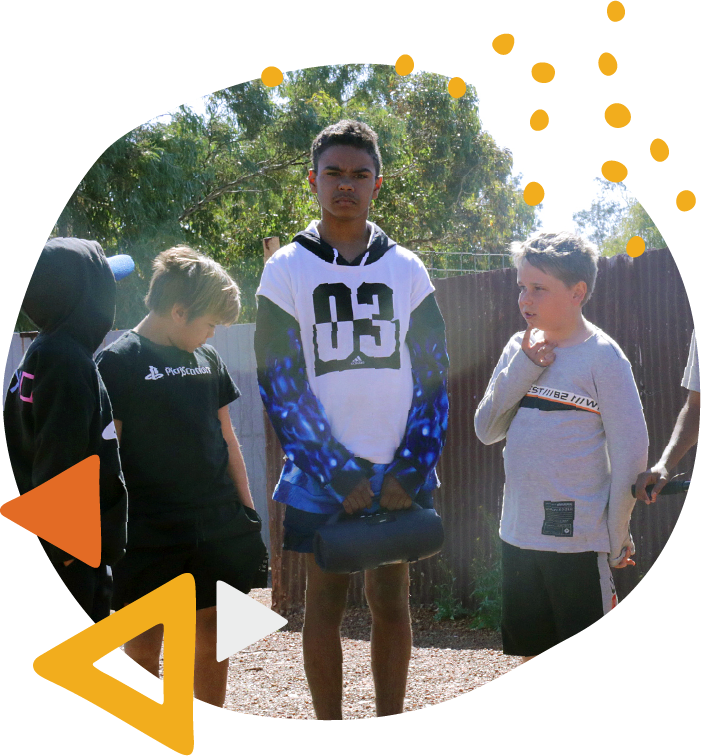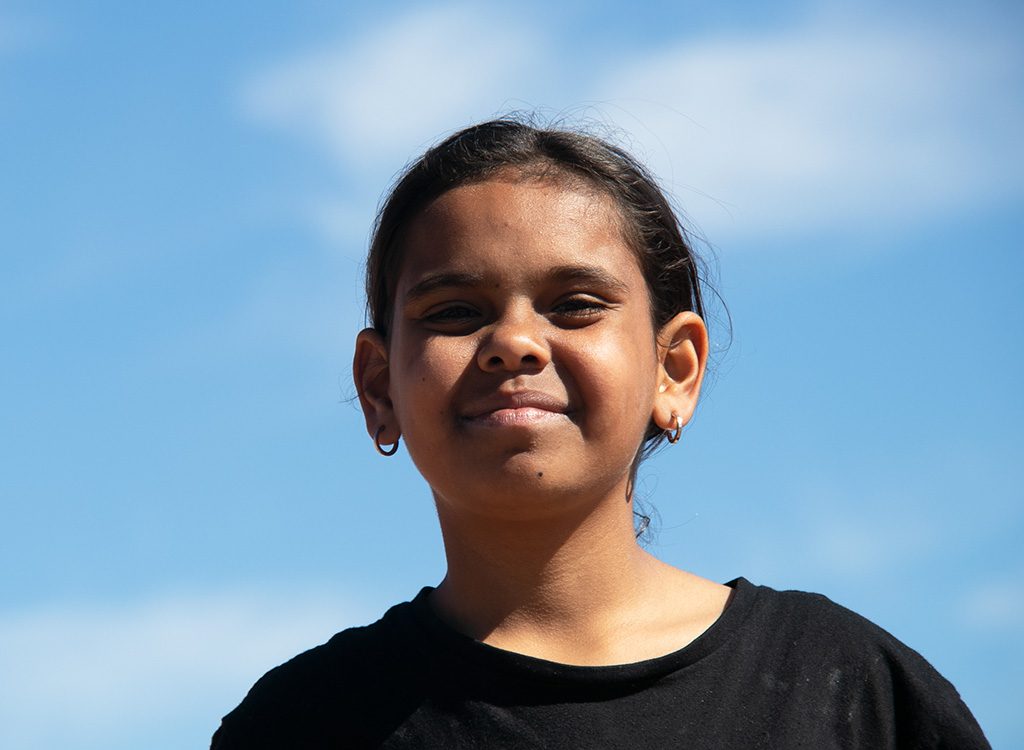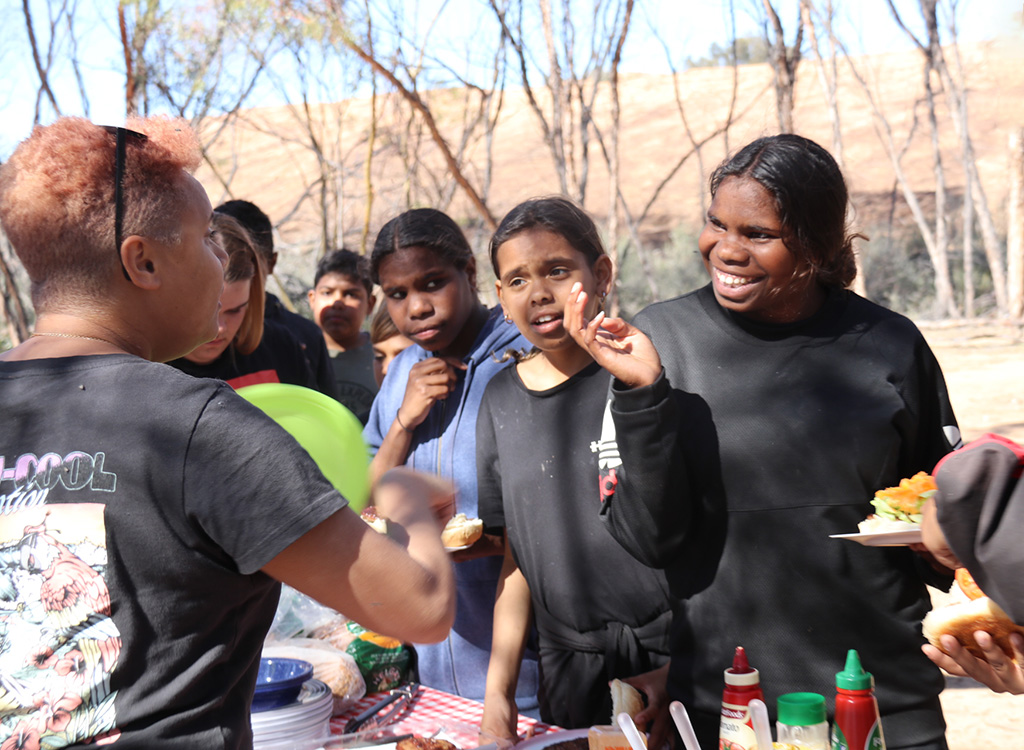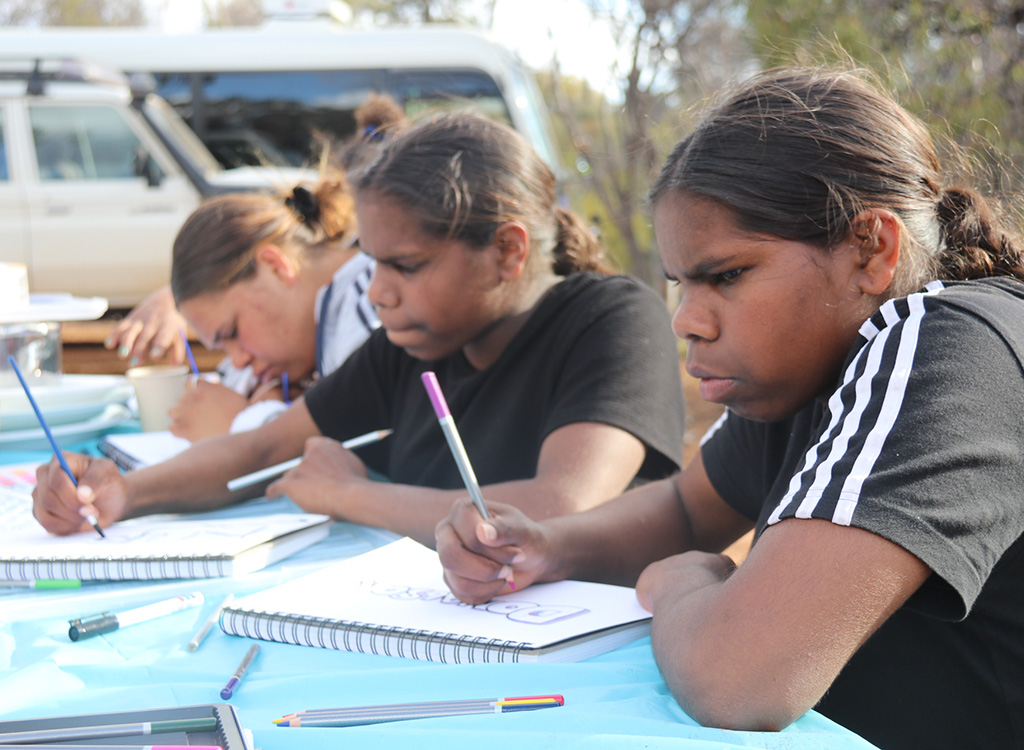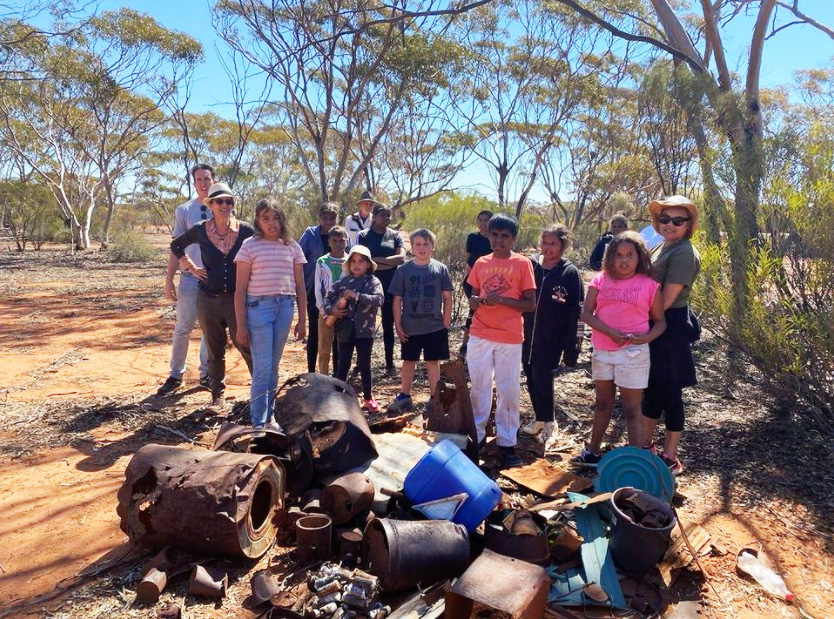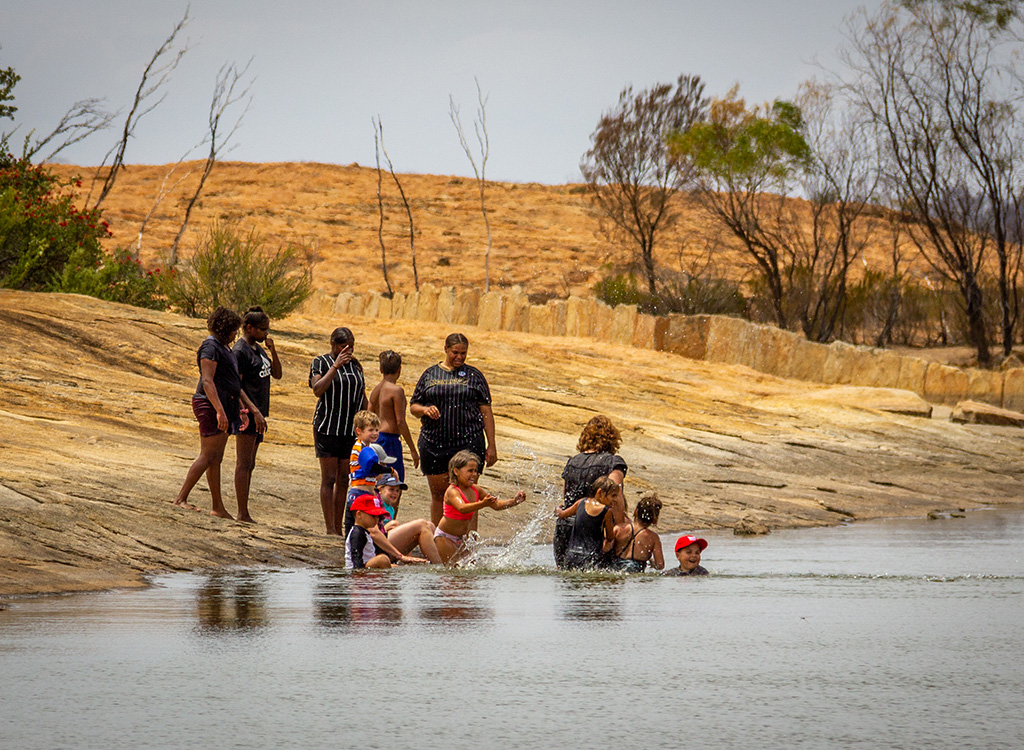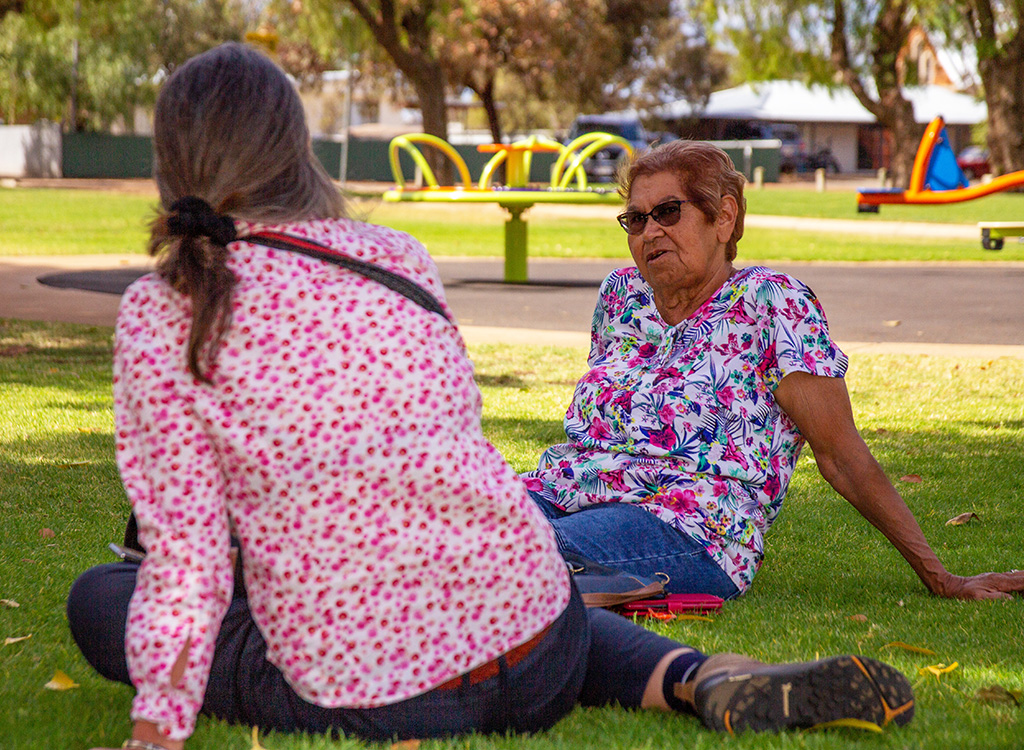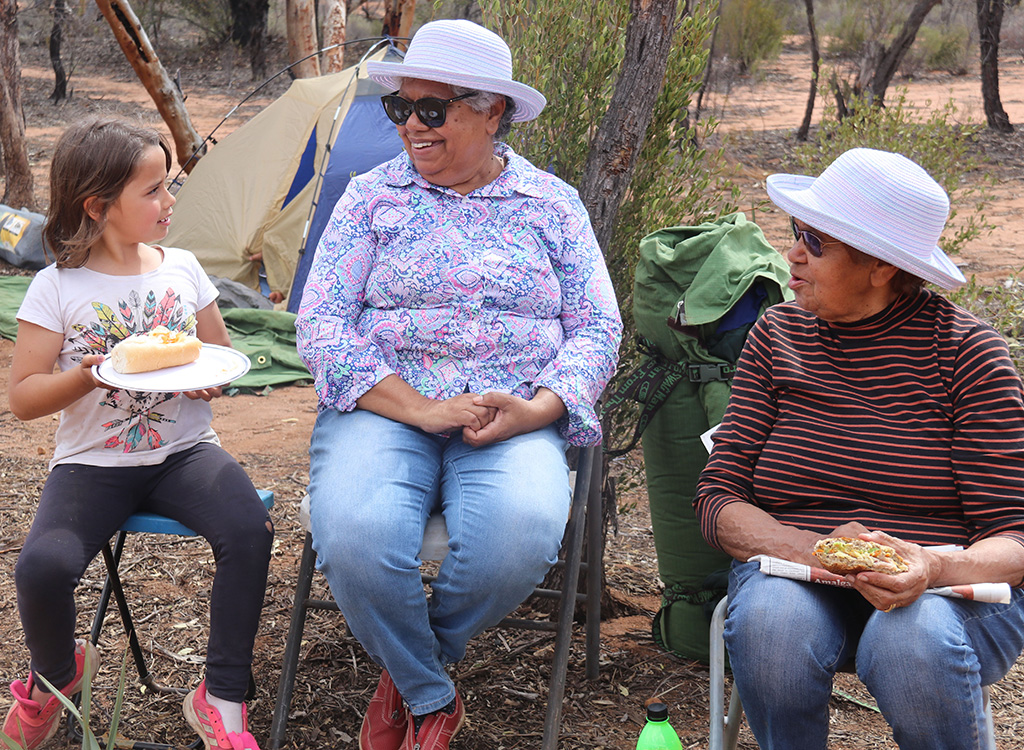Young people turn up consistently for the Nutha Way program because they are respected, listened to and can see a positive future from the activities and the relationships they are building.
Our Approach
We have learned from experience that working in communities means taking the time to listen first and learn from their experiences. We focus on building strong relationships first, nurturing a mutual trust so that the community has the confidence and capacity to work with the program. We go slow and actively listen before any action is determined, ensuring solutions are always culturally appropriate and youth-led. Nutha Way follows the Millennium Kids Skills for Life process, with a special focus on 6 key principles. Skills for Life asks young people to identify solutions to the problems they’re experiencing, research and implement projects at a local level, and engage with the wider community for lasting and real change. The Skills for Life process has been acknowledged as intrinsically aligned with UNESCO’s Life Skills framework and has proven results in building confidence and resilience in young people. One of the best testaments to the Skills for Life approach is that the Nutha Way Indigenous Youth Leaders are all alumni of the Millennium Kids program for high school students. They have returned 12 years later to lead this program.
25+ Year: Skills for Life Approach
Principles
Strengths-Based
The strength-based approach focuses on a community or individual’s strengths, capacities and assets, and looks for opportunities to support rather than focusing on the problem. It is a philosophy and a way of viewing people as resourceful and resilient.
Youth-Led
There is a range of programs for Indigenous people once they reach employment age, but this is sometimes too late to engage them successfully. Nutha Way works with young people earlier in their lives, to support and listen to them at crucial developmental stages. The age range of the program is 6–17 years old with most young people aged under 14. Nutha Way focuses on young people because we know support in the early years is the best way to make lasting change.
Co-Design
By working in close consultation with young people, and focussing on their strengths, we can better understand the issues they face. Co-design is a collaborative process to empower young people and stakeholders to identify problems, seek solutions and then contextualise them for achievable outcomes. This principle is rooted in the belief that the people who see the need for change in their community are the ones who hold the key to their answer.
Active Citizenship
Active citizenship refers to a philosophy that we all have roles and responsibilities to society and the environment. This is of particular importance for young Indigenous people, whose cultural and spiritual values are in deep connection with Country. Active citizenship builds a sense of responsibility and resilience and encourages leadership. It champions the voices of young people in determining their future and the future of their communities.
On Country
The Coolgardie project has been delivered on Country in the Great Western Woodland. Caring for Country is a spiritual as well as an environmental practice. Knowing and caring for Country means young people are immersed in nature and engaged in their environment. This facilitates better learning, giving kids a chance to connect to language and family.
Deep Listening
Deep listening describes the processes of deep and respectful listening to build community—a way of encouraging people to explore and learn from the heritage of culture, knowledge and understanding. Deep listening means taking the time to listen first, from a receptive and caring place to a deeper and often subtler level of meaning. Working in communities means taking the time to go slowly, listen and build relationships first.
Intergenerational
Connecting with and learning from Elders is fundamental to the Nutha Way program. Kids regularly report that their favourite part of the program is listening to their Elders’ stories and visiting locations that are culturally significant. Incorporating an intergenerational approach to the Nutha Way program is hugely beneficial for ensuring solutions are culturally appropriate and sustainable.
Fun
Above all Nutha Way has to be FUN. Kids won’t come and they certainly won’t stick around if it is not fun. Things that kids report as being the most fun are “Camping, listening to Nanna Betty tell stories, swimming, exploring ‘On Country’, having a good feed and eating chocolate.”


